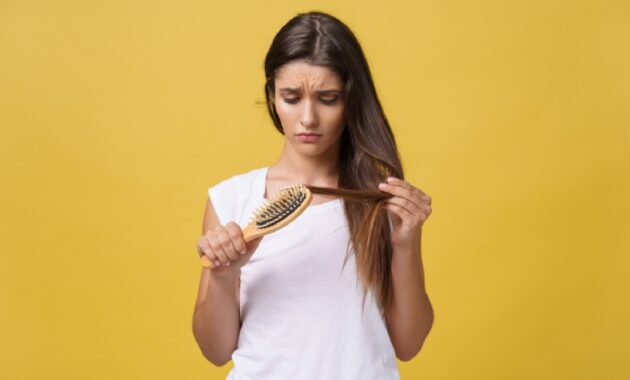When women get their periods, various aspects of the body, including hair, get affected. Yes, it’s not just bloating, cramps, or mood swings that women face. Periods can also make your hair greasy. Trying out different shampoos or hair treatments might help reduce the oiliness but it is important to know which ones work and why periods make hair greasy. Read on to find out if greasy hair during periods is something that all women face or if it affects only some women.
HealthShots connected with Dr Kuna Ramdas, Senior Dermatologist, Kamineni Hospitals, Hyderabad, to explore the relationship between menstrual cycle and greasy hair.

Periods can affect your hair
We have all heard about hormonal fluctuations that happen during the menstrual cycle. Well, they can have a direct impact on the sebaceous glands in the scalp, says Dr Ramdas. These glands produce sebum, which is an oily substance, needed to moisturise and protect the hair and scalp. Hormonal changes can stimulate the sebaceous glands to produce more sebum, which can make your hair greasy during period. Also, an increase in body temperature during menstruation can stimulate the sebaceous glands further, making the hair greasy.
The good thing is that not all women experience greasy hair during their period, but it is quite common. But women with naturally oily hair and those who already have an overactive sebaceous gland activity might be more prone to experiencing greasy hair during their periods, says the expert. Women with hormonal imbalances or conditions such as polycystic ovary syndrome (PCOS) might also complain about greasy hair during period.
What to do when hair gets greasy during period?
To manage greasy hair during the menstrual cycle, you can do the following –
• Frequent shampooing with a gentle, pH-balanced shampoo.
• Use a dry shampoo between washes.
• Adopt a proper hair care routine with lightweight and oil-free products.
• Maintain a balanced diet.
• Stay hydrated.
• Opt for hairstyles like ponytails or buns to keep the hair away from the face.

Ways to prevent greasy hair while on period
You can make efforts to prevent your hair from becoming extra oily when you are down. To prevent greasy hair during your period, you can follow these tips –
1. Maintain a regular hair washing schedule
You should follow your regular hair washing schedule, instead of increasing the number of times you wash your hair. Oil production can go up while you are down, so do not over-wash your hair. It will only make your hair dry and then to retaliate, excessive amounts of oil will be produced, making hair greasy.
2. Use a clarifying shampoo
You can use it once a week so that it can help to remove buildup and clean your hair and scalp, says Dr Ramdas.
3. Avoid touching your hair excessively
Touching your hair again and again might be your habit. It is a bad hair habit as it can transfer oil from your hands to your hair.
4. Choose right hairstyles
Go for hairstyles that will keep your hair off your face and allow for better airflow. That means leaving your hair open is not an option.
5. Use a gentle, sulfate-free shampoo and conditioner
This will help to avoid stripping your hair’s natural oils, says the expert. If you frequently wash your hair with very strong shampoos then your scalp will start producing more oil.
So, understanding the impact of the menstrual cycle on hair health, particularly greasy hair, can help you to better manage it. All you have to do is follow a proper hair care routine, maintain a healthy lifestyle, and make small adjustments during your period.
#Greasy #hair #periods #Heres #menstrual #cycle #affects #hair
